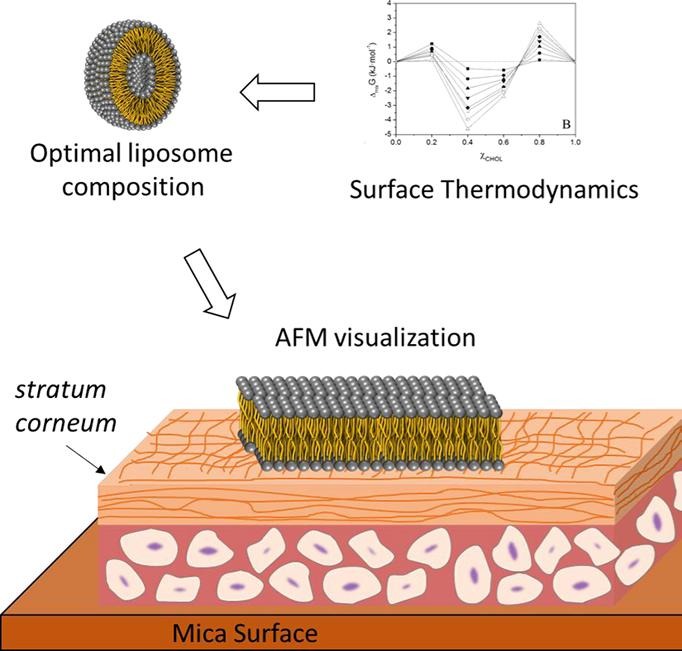Planar lipid bilayers formed from thermodynamically-optimized liposomes as new featured carriers for drug delivery systems through human skin.
The fundamental objective pursued in this work is to investigate how liposomes formed with a thermo- dynamically optimized molar composition formed by the main components of the stratum corneum matrix behave on the human skin surface when used as drug delivery systems. To this purpose we engineered liposomes using phosphatidylcholines, ceramides and cholesterol. The specific molar ratio of the three components was estab- lished after studying the mixing properties of the lipid monolayers of the lipid components formed at the air–water interface. Liposomes loaded and unloaded with ibuprofen and hyaluronic acid were characterized by quasi-elastic light scattering and fluorescence polarization. Optimized liposomes, with and without drugs, were applied onto human skin and the structures formed evaluated using atomic force microscopy. Since penetration enhancers improve the permeation of the drugs encapsulated, we also examined the effects of Tween® 80 on the physical properties of the liposomes and on their extensibility over skin. In the present work we were able to observe the deposition and extension of liposomes in suspension onto
human skin demonstrating the potential of liposomes without a secondary vehicle for releasing drugs in transdermal applications.


